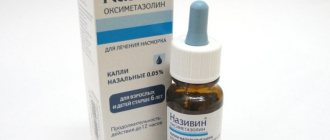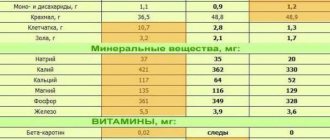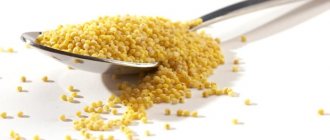Mother's milk is the most balanced product for a child. Normally, the liquid contains many vitamins and minerals. Often after childbirth, a woman’s body experiences a lack of nutrients. Then the baby receives milk with a low concentration of vitamins. This condition is dangerous because it increases the likelihood of malnutrition (lack of body weight), hypovitaminosis, and anemia. The child grows more slowly, and his neuropsychic development is disrupted.
Femibion 2 is a complex preparation based on vitamins and minerals that provides mother and child with useful substances. Take the drug from the 14th week of pregnancy and during lactation. Femibion saturates the body with useful substances and promotes the normal development of the newborn.
Can this drug be used during lactation?
Breastfeeding is an important time in the life of mother and baby. During this period, the child actively gains weight and receives all the necessary vitamins from mother’s milk. A woman’s body spends a lot of calories producing useful elements and often depletes its own resources.
The lack of necessary substances affects the appearance and condition of the hair, skin and nails of a young mother. To compensate for this deficiency, women are recommended to take vitamins for nursing, including Femibion. This drug can be taken during lactation; it will help take care of yourself and your baby.
Femibion 2 during breastfeeding
As the instructions say, Femibion during breastfeeding is intended to replenish the lack of vitamins and iodine. This is necessary so that the baby receives the nutrients it needs during this period, which will ensure the improvement of the mother’s condition and the normal development of the newborn.

There is no need to stop breastfeeding while taking the drug. On the contrary, a multivitamin complex is taken during lactation so that beneficial substances penetrate into the baby’s body along with milk. B vitamins, iodine and other components nourish the body of a lactating woman and child.
The drug for nursing mothers has practically no contraindications, however, after taking it you need to carefully monitor the condition of the baby, and also pay attention to your well-being. If after using the drug the baby develops an allergy in the form of a rash, redness, itching, then you should stop taking it and consult a doctor. The same should be done if unpleasant symptoms occur in a nursing mother.
Contraindications and side effects
A contraindication to taking Femibion is the presence of intolerance to one or another component included in the drug. As a rule, the vitamin complex is well tolerated by the body and does not cause any adverse reactions .
But in a few cases, side effects may occur:
- Allergic reactions (itching, peeling, redness, rash).
- Apathy.
- Nausea (after taking the pill).
They are detected quite rarely and disappear after discontinuation of vitamins.
If side effects are observed when using Femibion 1, they may recur when taking Femibion 2. To prevent them from bothering you, try switching to another multivitamin complex.
Admission rules
Vitamins are taken orally during or immediately after eating food. The drug is taken once every 24 hours, and the tablet and capsule are drunk at the same time. That is, you can first take a pill and then a capsule, or vice versa.
If a woman was unable to take a tablet with a capsule during meals, then the intake is carried out at different times. For example, during the first meal a pill is taken, and during the next meal a capsule is taken. In any case, a lactating woman should take 1 tablet and capsule per 24 hours. The pill or capsule is swallowed and washed down with filtered water (100 ml). You should not bite or chew the drug.
Doctors recommend taking a multivitamin complex in the morning or afternoon. This is explained by the fact that the drug excites the nervous system of expectant or new mothers. If the patient takes Femibion 2 in the afternoon, it will be more difficult for her to fall asleep. While taking the drug, you should remember that it is forbidden to exceed the dose on your own, otherwise the likelihood of adverse reactions increases. In addition, it should be remembered that even a good multivitamin complex cannot replace a balanced diet.

How does it affect lactation and the baby during feeding?
The benefits of breast milk are undeniable: it strengthens the baby’s immunity, protects against infections, tummy problems, and affects mental development.
It is very important that a woman receives the required amount of vitamins along with food. But a young mother’s diet does not always correspond to the norm. The new lifestyle: lack of sleep, constant care of the child - does not allow you to pay attention to your own health in time. Women seek help when they begin to worry about dental problems, hair loss, postpartum depression, and this does not happen immediately after the birth of the baby.
Taking Femibion vitamins will not affect the amount of milk or slow down the lactation process. Manufacturers urge young mothers not to stop taking medications in order to prevent and relieve unpleasant changes in a woman’s body that may occur during breastfeeding.
After childbirth, the mother needs folic acid in the amount of 500 mcg per day. It helps to cope with anemia and protects the baby’s body from its development.
Daily intake of the biologically active complex prevents the occurrence of postpartum depression and keeps the mother’s body alert.
If the mother is calm, happy with life and feels good, then the child actively eats, gains weight and pleases the parents.
Precautionary measures
Femibion 2 vitamins should not be taken only if you are intolerant to the components of the drug. If you are allergic to the main or auxiliary components, it is better to replace the product.
As a rule, a multivitamin complex during pregnancy or breastfeeding is well tolerated and there is no discomfort or negative reactions after taking it. However, in the presence of hypersensitivity or unreasonably exceeding the dosage, the likelihood of side effects in the form of an allergic rash on the skin, itching, hyperemia, and peeling increases. In addition, the drug can cause nausea and apathy.
The above-described negative reactions during breastfeeding occur quite rarely and disappear on their own after stopping use. If negative effects are present, then you should discontinue the drug and consult a doctor about choosing an analogue.
Recommendations for use during hepatitis B
After childbirth, women note a deterioration in the appearance and condition of their nails, hair, and teeth, so many strive to continue taking vitamins while breastfeeding.
The rules for taking Femibion 2 during breastfeeding are no different from use during pregnancy . It is better to take the tablet and capsule in the first half of the day during or after meals.
However, mothers are advised to pay attention not only to their condition, but also to the appearance of the baby. A baby may be allergic to vitamins, so taking them will need to be stopped.
Also, Femibion 2 does not contain magnesium, iron and calcium. If necessary, they should be taken separately.
Most reviews about Femibion vitamins are positive . Women note improved health, cessation of hair loss and the necessary replenishment of vitality.
Directions for use and dosage
Femibion is used during or after meals once a day. The tablet and capsule are drunk at the same time, without dissolving or chewing.
Doctors advise using vitamins in the morning or afternoon , because... the drug acts on the nervous system. After taking Femibion in the evening, a woman may experience problems falling asleep.
The dose of the drug should not be exceeded. Otherwise, the risk of side effects may increase.
Basic information about the drug
Vitamins are produced in the form of tablets and capsules, which have the following composition:
Pills:
- calcium ascorbate;
- nicotinoamide;
- α-tocopherol acetate;
- calcium pantothenate;
- pyridoxine hydrochloride;
- riboflavin;
- thiamine nitrate;
- folates;
- vitamin B9;
- L-methylfolate;
- iodine;
- biotin;
- cyanocobalamin;
- MCC;
- stabilizer E463, E464, E470b;
- syrup;
- starch;
- titanium dioxide;
- glycerol;
- iron oxide
Soft capsules:
- docosahexaenoic acid;
- tocopherol;
- glycerol;
- maltitol;
- sorbitol;
- fish gelatin.

The drug for nursing mothers contains folic acid (B9), which has a beneficial effect on the development of the newborn (in the womb or after birth). The body absorbs a minimum amount of vitamin B9 from foods, which is vital, and therefore compensates for its deficiency with the help of synthetic folate.
In order for the newborn to develop normally, the mother must consume vitamins, iodine, which are part of the multivitamin complex.
The action of Femibion 2 is determined by the substances included in its composition:
- Thiamine is responsible for carbohydrate metabolism and energy supply.
- Riboflavin also provides energy metabolism.
- Pyridoxine regulates protein metabolism.
- Cyanocobalamin has a beneficial effect on the hematopoietic system and the central nervous system.
- Ascorbic acid promotes the formation of connective tissue, facilitates the absorption of iron, and improves immunity.
- Tocopherol resists oxidants.
- Pantothenate is involved in metabolic processes.
- Nicotinamide improves skin immunity.
- Iodine is a vital mineral that promotes the growth and normal functioning of the thyroid gland.
- Essential fatty acid promotes brain and vision development.

As the instructions say, Femibion 2 is taken to compensate for the deficiency of vitamins and minerals from the 14th week of pregnancy until the end of lactation.
Composition and effect of the drug
Vitamins are biologically active substances that are not formed and practically do not accumulate in the human body. They are necessary for normal life, so they must always be supplied in sufficient quantities with food or in the form of vitamin-mineral complexes.
The packaging of the drug Femibion I contains tablets, and Femibion II, in addition to tablets, also contains capsules. The composition of the tablets in both dietary supplements is exactly the same. Capsules include substances that women need only from the second trimester of pregnancy.
Composition of Femibion® Natalker I and II tablets
Tablets, the same for both Femibion complexes, contain vitamins B (B1, B2, B5, B6, B9 and B12), C, E, PP and iodine in dosages recommended by WHO [5]:
- Thiamine (vitamin B1) and riboflavin (B2) have a positive effect on the functioning of nerve cells in the brain, participate in carbohydrate metabolism and provide cells with energy.
- Pyridoxine (B6) is part of many enzymes that regulate protein metabolism, hemoglobin synthesis, and the production of neurotransmitters.
- Vitamin B9 (folic acid) is involved in the formation of the fetal neural tube. With its deficiency, normal hematopoiesis and synthesis of nucleic acids (DNA and RNA) are impossible.
- Cyanocobalamin (B12) stimulates hematopoiesis and cellular metabolism of red blood cells, and is involved in the biosynthesis of nucleic acids.
- Ascorbic acid (vitamin C) promotes the absorption and absorption of iron in the intestines and has antioxidant properties.
- Vitamin E is also an antioxidant.
- Biotin (B7), nicotinamide (vitamin PP) and pyridoxine (B6) have a beneficial effect on the condition of the skin, hair and nails of mother and child.
- Vitamin B5 (panthenol) is required for the production of antibodies of the immune system and is involved in the healing of the skin.
- Nicotinamide supports the protective function of the skin, which is beneficial for both the baby and the nursing mother.
- Iodine is necessary for the synthesis of thyroid hormones of the thyroid gland. With a deficiency of these hormones, children experience severe mental and physical development disorders (cretinism, congenital hypothyroidism).
Composition of Femibion® Natalker II capsules
Capsules contain two active substances:
- tocopherol acetate (vitamin E);
- docosahexaenoic acid (DHA).
DHA is an unsaturated Omega-3 fatty acid. It is necessary for the normal development of the brain and visual organs of the fetus. Starting from the second trimester of pregnancy, this acid, together with an additional dose of tocopherol, provides the woman with increased needs for vitamin substances.
Indications for use
Indications for taking Femibion® Natalker I are [6]:
- pregnancy planning period (at least three months before conception);
- pregnancy up to 12 weeks.
These tablets can also be taken by non-pregnant women to prevent hypovitaminosis.
Indications for taking Femibion® Natalker II [7]:
- pregnancy from 13 weeks;
- breastfeeding the baby (until the lactation period ends).
Contraindications
There are few contraindications to the use of these multivitamin complexes: individual intolerance or an allergic reaction to any of the components of the drug.











